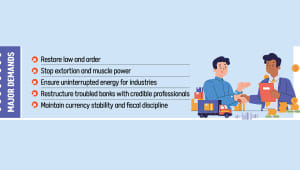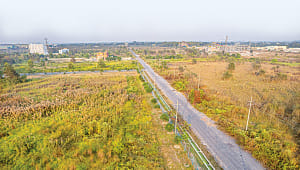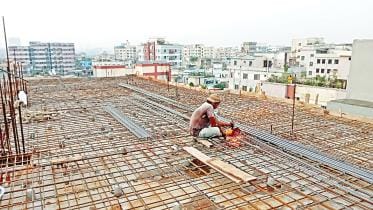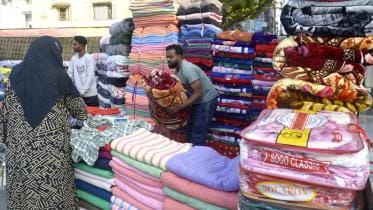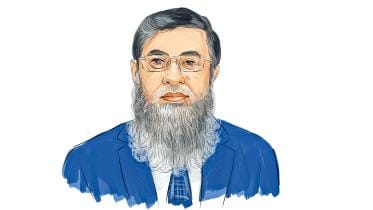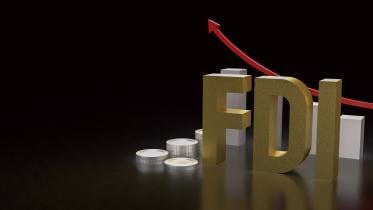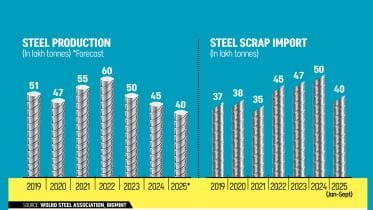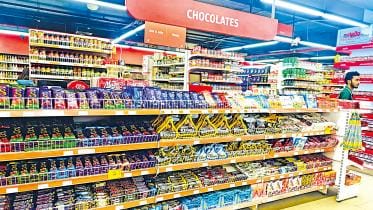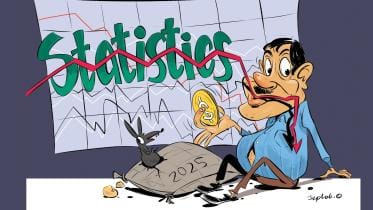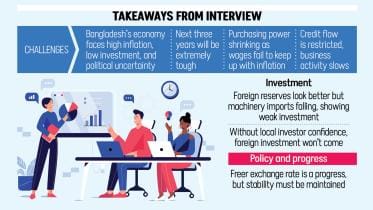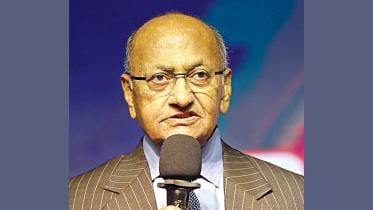Construction slump likely to persist in 2026
Says industry leaders, experts
3 January 2026, 18:00 PM
Comforters replacing blankets as urban winter favourite
When Rumana Parveen Rinky, a private jobholder, went shopping for winter essentials this year, she opted for something new -- a comforter..“It’s light, washable, and easy to use,” she said, explaining the reason behind switching from the heavy blanket she used in previous winters. “Blanket
31 December 2025, 14:20 PM
RMG industry under strain amid factory closures, job losses
BKMEA chief says, decries rising production costs
13 December 2025, 18:00 PM
Mid-range apartments prop up ailing property market
Premium segment buyers largely missing after the political changeover, while low-end customers beaten out of market
6 December 2025, 18:22 PM
Energy crisis, economic slump weigh on ceramic industry
Says a leader of ceramic manufacturers’ association
29 November 2025, 20:18 PM
Bangladesh yet to benefit from GI products: BUILD study
Moreover, many heritage items are at risk of losing their GI tag to other countries
26 November 2025, 13:30 PM
Is Bangladesh’s economy really doing alright?
Beneath this surface of optimism lies a far more fragile reality
25 November 2025, 11:27 AM
Intent was good, but poor execution failed plastic ban
In 2002, in a revolutionary move, Bangladesh became the first country to ban thin plastic bags. Needless to say, it failed to achieve any tangible success. More initiatives in the later years also ended with similar results.
23 November 2025, 19:57 PM
FDI’s hidden crisis: Where is the new money?
At least $8 billion in FDI is needed annually to boost GDP growth by one percentage point
6 November 2025, 13:24 PM
Private sector credit appetite wanes further
Credit growth drops to its lowest in at least four years
2 November 2025, 21:09 PM
Steel demand weak for three years
BigMint projects a turnaround in FY27
1 November 2025, 19:01 PM
Mimi, nostalgia and new bites
Local, global brands offer treats for all budgets, with young people driving the demand
24 October 2025, 18:00 PM
ILO ratification major step, but enforcement key: rights groups
Bangladesh’s ratification of three key conventions of the International Labour Organization (ILO) is seen as a major step towards improving labour rights and workplace safety, but experts say it also brings new responsibilities for the government and employers to ensure proper enforcement and le
23 October 2025, 19:44 PM
ILO ratification demands labour reforms in Bangladesh
The rights groups welcome the move as a long-overdue response to workers’ demands
23 October 2025, 12:59 PM
BBS still relies on paper for 60% of data
Economists advocate for autonomy, resources and expertise
19 October 2025, 18:51 PM
Between dreams and debt
Excessive recruitment fees, low salaries, and permit costs trap Bangladeshi workers in Malaysia
10 October 2025, 18:00 PM
It will take political govt at least 3 years to stabilise economy
Says DCCI President Taskeen Ahmed
4 October 2025, 20:10 PM
‘Business people shouldn’t get into politics’
In an era when the lines between business and politics often blur, M Anis Ud Dowla, one of the most respected names in Bangladesh’s corporate history, offers a sharp counterpoint. The chairman of Advanced Chemical Industries (ACI) Ltd believes the two should remain firmly apart, and his own career stands as an argument for why.
1 October 2025, 18:00 PM
From family business to global player
Ahsan Khan Chowdhury, chairman and CEO of Pran-RFL Group, has been named the recipient of this year’s Business Person of the Year, one of the most prestigious accolades presented at the Bangladesh Business Awards.
1 October 2025, 18:00 PM
Don't let Khagrachhari unrest pass silently
The crisis in Khagrachhari is rooted in deeper fractures.
30 September 2025, 04:00 AM





